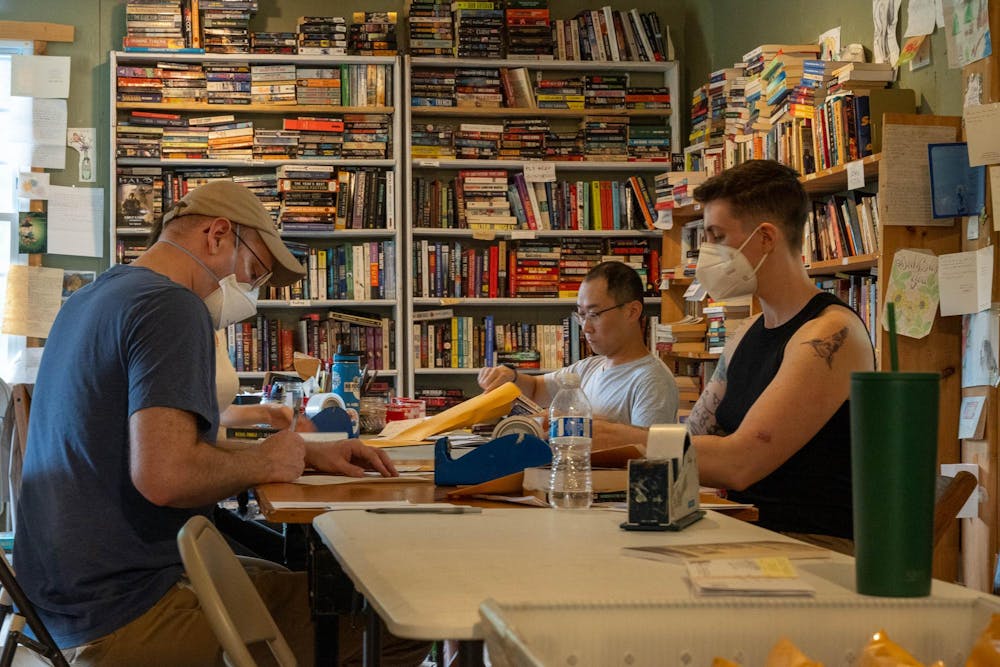UNC alum Leigh Lassiter still remembers seeing a flyer for the Prison Books Collective on campus back in 2015. A few years later, Lassiter decided to reach out to the collective, and for the past five years they have been the organization's secretary, processing and fulfilling requests for books from inmates in prisons in North Carolina and beyond.
The Prison Books Collective, which was founded in 2006 and achieved nonprofit status 10 years later, is an organization that sends books and magazines to incarcerated people in both state and federal prisons.
Lassiter has used reading as a way to process grief and to escape complicated situations throughout their life. They said they can imagine that books could also provide comfort for prisoners, which inspires Lassiter to continue their work at the collective.
“To try to give them somewhere else to be, and something maybe even to hope for, is why I do that,” they said.
The collective is an official publisher and distributor, which means it is able to get books into prisons despite strict restrictions dictating who can bring literature beyond cell walls. Many states, including North Carolina, have implemented content-neutral bans, meaning that friends and family members of inmates cannot send books or magazines directly to inmates; they must ship them from publishers or online retailers.
Additionally, the North Carolina Department of Adult Correction has a list of books that are banned in prison, including “The Color Purple” by Alice Walker and “The Autobiography of Malcolm X” by Malcolm X with Alex Haley.
“We receive requests from inmates or their friends and family and loved ones, either through letters written to us or through certain email platforms, and we have a book collection that is made up of donations from anyone,” volunteer Maria Palmtag said.
She said that volunteers meet in the collective's space every Sunday to open letters and emails and package books that they feel will best fulfill those requests.
“Prison libraries tend to be woefully inadequate; they are underfunded,” Palmtag said. “Some of them don't even have libraries. [A prison library] is also a privilege that can be taken away from prisoners by various infractions. By sending books directly to them, it qualifies as their personal property, so it is a lot harder to take them away.”



